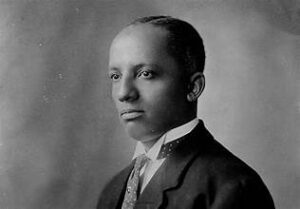Black History Month
Introduction
Black History Month, observed annually in February, stands as a tribute to the rich and diverse tapestry of Black heritage. Originally established to honor the profound contributions of Black Americans throughout history, it has evolved into a global celebration of resilience, triumph, and cultural significance. Beyond merely commemorating the past, Black History Month serves as a crucial reminder of the importance of inclusivity, understanding, and the ongoing pursuit of racial equality. Acknowledging the struggles, achievements, and cultural advancements of the Black community during this designated month is not just a commemoration but a commitment to recognizing the indispensable role of Black history in shaping our collective narrative.
Historical Background Of Black History
Black History Month finds its roots in the dedicated efforts of Dr. Carter G. Woodson, a pioneering African American historian, and educator. The initiative began with the establishment of Negro History Week in 1926, a significant undertaking by Dr. Woodson to ensure that the historical contributions of Black Americans were recognized and celebrated. Positioned in February to coincide with the birthdays of Abraham Lincoln and Frederick Douglass, the week aimed to highlight the pivotal roles these figures played in the abolition of slavery and the advancement of civil rights.

Dr. Carter G. Woodson’
Dr. Carter G. Woodson’s vision extended far beyond a single week, as he aimed to foster a continuous appreciation of Black history. Over the years, the celebration gained momentum, and in 1976, it officially expanded to encompass the entire month of February. This evolution reflected a broader recognition of the need to delve deeper into the expansive history, culture, and achievements of Black individuals, acknowledging that a month-long observance provided a more comprehensive platform for education, reflection, and celebration. The transition from Negro History Week to Black History Month marked a pivotal moment in the ongoing commitment to acknowledging and elevating the significance of Black history in the broader context of global history.
Need assignment help for this question?
If you need assistance with writing your essay, we are ready to help you!
OUR PROCESS
Order
Payment
Writing
Delivery
Why Choose Us: Cost-efficiency, Plagiarism free, Money Back Guarantee, On-time Delivery, Total Сonfidentiality, 24/7 Support, 100% originality
Significance of Black History Month
Black History Month holds profound significance as a dedicated period for illuminating the remarkable achievements and contributions of Black individuals throughout history. By shining a spotlight on the accomplishments of Black leaders, innovators, artists, and thinkers, this month serves to counter historical omissions and ensures a more accurate and inclusive representation of the diverse talents and successes within the Black community.
Equally important is the role Black History Month plays in recognizing the struggles and challenges faced by the Black community. From the enduring legacies of slavery to the ongoing fight for civil rights, acknowledging historical adversities is essential for fostering empathy and understanding. It provides an opportunity to reflect on the resilience of Black individuals and communities, inspiring collective efforts to address systemic issues and promote justice and equality.
Beyond a retrospective lens, Black History Month actively contributes to fostering understanding and promoting inclusivity. By engaging in discussions, educational initiatives, and cultural events, society can transcend stereotypes and misconceptions, fostering an environment where diverse perspectives are valued. This celebration encourages individuals to embrace the richness of Black history, thus fostering a more inclusive narrative that recognizes the integral role of the Black community in shaping the world we live in today. In essence, Black History Month serves as a catalyst for dialogue, learning, and the continual pursuit of a more equitable and united society.
Notable Figures in Black History
- Martin Luther King Jr.: Reverend Martin Luther King Jr. stands as a towering figure in the American civil rights movement. Renowned for his advocacy of nonviolent protest, King played a pivotal role in the fight against racial discrimination and segregation. His leadership and iconic “I Have a Dream” speech continue to resonate, inspiring generations to strive for equality and justice.
- Malcolm X: A prominent voice in the civil rights struggle, Malcolm X was a charismatic and influential figure. His advocacy for self-defense and empowerment for the Black community, particularly through the Nation of Islam, challenged the mainstream narrative. Malcolm X’s legacy extends beyond his lifetime, influencing discussions on racial identity, self-determination, and human rights.
- Katherine Johnson: A pioneering mathematician, Katherine Johnson’s contributions to NASA were instrumental in the success of early space missions, including the historic Apollo 11 moon landing. Despite facing racial and gender barriers, Johnson’s calculations were crucial for NASA’s trajectory analysis, earning her the Presidential Medal of Freedom in 2015.
- Mae Jemison: Dr. Mae Jemison made history as the first African American woman to travel to space. Beyond her groundbreaking achievement as an astronaut, she is a physician, engineer, and advocate for STEM education. Dr. Jemison continues to inspire future generations to pursue careers in science and technology.
- Maya Angelou: Maya Angelou, a renowned poet, author, and civil rights activist, used her powerful words to address issues of race, gender, and identity. Her autobiographical work, including “I Know Why the Caged Bird Sings,” remains a literary cornerstone, conveying the resilience of the human spirit and the quest for self-discovery.
- James Baldwin: A prolific writer and social critic, James Baldwin’s works explored the complexities of race, sexuality, and identity in America. Through novels like “Go Tell It on the Mountain” and essays like “The Fire Next Time,” Baldwin challenged societal norms and called for a deeper understanding of the human experience.
These notable figures not only left an indelible mark on Black history but also contributed significantly to the broader cultural, social, and scientific landscapes, shaping the world we live in today.
Celebrating Black Culture
- Art: The Black community has made enduring contributions to the world of visual arts. From the Harlem Renaissance to contemporary expressions, Black artists have produced impactful works that reflect diverse experiences, challenge stereotypes, and contribute to the global art scene. Artists like Jean-Michel Basquiat and Kara Walker have left an indelible mark on the art world.
- Music: Black musicians have been at the forefront of shaping various music genres, from jazz and blues to hip-hop and R&B. Icons like Louis Armstrong, Aretha Franklin, and Beyoncé have not only entertained but also influenced cultural and social movements through their music, amplifying the rich tapestry of Black musical expression.
- Literature: The literary contributions of Black writers span centuries and encompass a wide range of genres. From the works of Langston Hughes and Zora Neale Hurston during the Harlem Renaissance to contemporary voices like Chimamanda Ngozi Adichie and Ta-Nehisi Coates, Black literature captures the complexity of human experiences and challenges societal norms.
- Fashion: Black designers, models, and influencers have played a crucial role in shaping global fashion trends. From trailblazers like Coco Chanel to modern visionaries like Virgil Abloh, Black individuals have made significant contributions to the fashion industry, influencing styles and breaking barriers.
- Popular Culture: Black culture has had a profound impact on popular culture, from film and television to sports and dance. Icons like Michael Jackson, Oprah Winfrey, and LeBron James have not only achieved success in their respective fields but have also become cultural symbols, reshaping perceptions and inspiring generations.
- Cultural Diversity: The Black community is incredibly diverse, encompassing a multitude of ethnicities, languages, and cultural practices. Recognizing and celebrating this diversity is essential for understanding the richness of Black culture and avoiding stereotypes that oversimplify or homogenize the experiences of Black individuals.
- Heritage and Traditions: Different regions and communities within the Black diaspora have distinct traditions, languages, and customs. Acknowledging and respecting these unique aspects of heritage contributes to a more inclusive and accurate representation of Black culture.
Celebrating Black culture is not just about acknowledging the past; it’s about embracing the ongoing vibrancy, creativity, and resilience of the Black community across various facets of life.
Black History Month Today
Contemporary celebrations of Black History Month involve a myriad of events and activities aimed at honoring the past, celebrating the present, and shaping the future. Cities around the world host cultural festivals, art exhibitions, and music performances that showcase the diverse talents within the Black community. Educational institutions often organize lectures, panel discussions, and film screenings that delve into the complexities of Black history and current social issues. Additionally, community-led initiatives, including storytelling events and heritage tours, provide platforms for individuals to connect with and learn from the lived experiences of the Black community. Through these diverse events, Black History Month fosters a sense of unity, pride, and understanding that extends beyond racial and cultural boundaries.
Education plays a pivotal role in promoting awareness during Black History Month and beyond. Schools and universities have a responsibility to incorporate comprehensive curricula that highlight the contributions and struggles of Black individuals throughout history. This extends beyond token acknowledgments to in-depth explorations of diverse narratives, ensuring a more accurate and nuanced understanding of Black history. Additionally, educational institutions can facilitate open dialogues that encourage students to critically engage with historical and contemporary issues related to race and equality. Beyond formal education, individuals can take the initiative to educate themselves through reading books, watching documentaries, and attending lectures, actively participating in the ongoing process of dismantling stereotypes and fostering a more informed and empathetic society.
Individuals can actively participate in and support Black History Month by engaging in meaningful and intentional actions. This includes attending local events and supporting Black-owned businesses to contribute to the economic empowerment of the community. Social media platforms provide avenues for sharing educational content, amplifying Black voices, and promoting awareness. Actively seeking out and consuming diverse perspectives in literature, art, and media is another impactful way to broaden one’s understanding. Moreover, engaging in conversations about racial equity and justice with an open mind and a willingness to learn fosters a culture of inclusivity and understanding. By actively participating in the commemoration of Black history, individuals contribute to a collective effort to dismantle systemic inequalities and build a more equitable and harmonious society.
Conclusion
In conclusion, Black History Month serves as a crucial annual observance that transcends mere recognition; it stands as a dedicated time to celebrate the indomitable spirit, rich heritage, and invaluable contributions of the Black community. From honoring trailblazers in civil rights to acknowledging cultural icons and pioneers in various fields, this month is a poignant reminder of the resilience and brilliance that have shaped history. As we reflect on the significance of Black History Month, let it inspire a commitment not only to a month of celebration but to a lifelong journey of learning, understanding, and amplifying the diverse narratives that constitute Black history. The true power lies in recognizing the importance of inclusivity every day, fostering a continuous celebration of Black history that extends beyond the confines of February, as we collectively strive for a more equitable and harmonious future.


